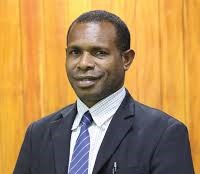Hon. Jason Peter, Minister for Community Development, Youth & Religion, led the review of the National Strategy to Prevent and Respond to Gender-Based Violence (GBV) with the aim of putting a stop to this pervasive issue affecting the nation.
“Our response to GBV must be comprehensive and immediate. This is a national issue that requires united action. We must act now for the sake of our women, our communities, and our nation’s future,” the Minister said, addressing the urgency of GBV.
Since the National Strategy to Prevent and Respond to GBV (2016–2026) was introduced, efforts to address GBV have had less notable progress, with persistent challenges remaining.
The Minister called for greater involvement from the government and stakeholders, emphasizing the need for collaboration at all levels to create meaningful and impactful change.
The development of the National Standard Operating Procedures for Safe Houses and Referral Pathways ensures survivors receives effective support. Minister Peter highlighted ongoing partnerships with civil society, development agencies, and international allies.
Present at the event was Ambassador Jongho Choi of the Republic of Korea, who shared insights into his country’s success in advancing gender equality and expressed hope for similar transformative progress in PNG through partnerships like the one with UNFPA.
Minister Peter expressed gratitude for partnerships with the Republic of Korea through the Korea International Cooperation Agency (KOICA), stating, “We are working closely with our partners, including the Republic of Korea, to ensure that we can bring real change for the survivors of GBV.”
The $5 million KOICA investment has been instrumental in implementing GBV initiatives, ensuring survivors have access to sexual and reproductive health services.
Present also during the conference was Ms. Saira Shameem of the United Nations Population Fund (UNFPA), who elaborated on the COICA-PAPUMA project, which strengthens survivor support systems in six provinces: Southern Highlands, Eastern Highlands, Western Highlands, Enga, Morobe, and East New Britain.
The strategy now focuses on engaging men and boys in reducing GBV. Ms. Vinzealhar Nen, a member of the review team, emphasized the importance of challenging harmful behaviors and promoting gender equality.
“The strategy acknowledges the role of men and boys in reducing GBV. It is crucial that we engage them in these efforts,” she noted.
The government’s commitment extends to the provincial level, where 17 provinces have developed GBV action plans. Provinces such as East Sepik and Southern Highlands have allocated K500,000 and K200,000 respectively for GBV initiatives over the next four years.
Meanwhile, the funding for GBV initiatives has increased to K11.7 million in 2024, and the National GBV Secretariat has mapped out 50 safe houses across 19 provinces to improve operational efficiency and support systems.
Looking ahead, K7 million has been committed for 2025 to support over 20 organizations addressing GBV. Grant applications will open next month, and a comprehensive review of the National GBV Strategy is underway. The revised version is set to launch in 2025.

